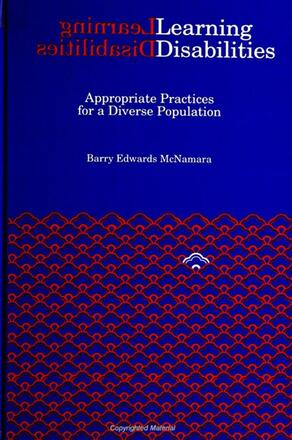
Learning Disabilities
Appropriate Practices for a Diverse Population
Alternative formats available from:
Provides a variety of instructional approaches that recognize the cultural and linguistic diversity found in students classified as learning disabled.
Description
This book addresses issues in teacher preparation and parental roles in the education of children with learning disabilities. It provides a variety of instructional approaches that recognize the cultural and linguistic diversity found in students classified as learning disabled. There is a critical need to incorporate a sensitivity to issues of diversity into educational assessment, curriculum planning, teacher training, and interactions with parents, especially in large urban areas which are characterized by cultural and linguistic diversity. Significant changes in traditional special education assessment and instruction are needed to effectively deal with the overrepresentation of minority students classified as learning disabled, and resolve the inherent problems with the definition and diagnosis of learning disabilities.
Barry Edwards McNamara is Associate Professor of Education, Dowling College, New York. He is the author of several books, including The Resource Room: A Guide for Special Educators, also published by SUNY Press.
Reviews
"The topic is cutting edge. McNamara provides readers with a deep understanding of the limitations and built-in biases of most assessment instruments used when diagnosing children as learning disabled. Learning Disabilities: Appropriate Practices for a Diverse Population is quite useful in prompting reflection about what it would take to develop assessment that is genuinely multicultural. " — Susan Merrifield, Lesley College